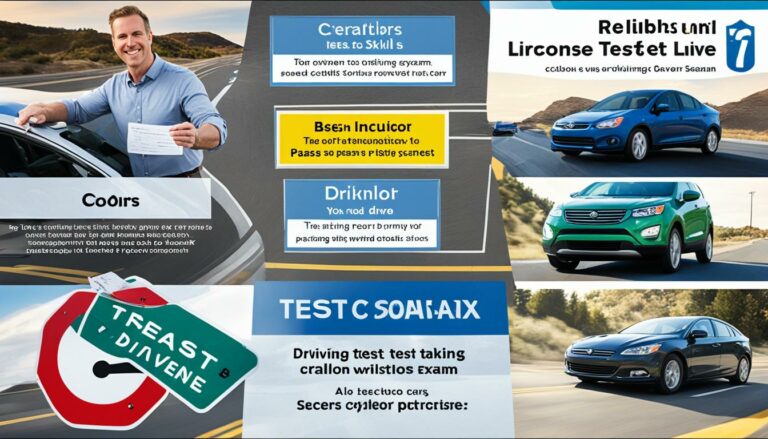Can Teens Have Heart Attacks? Know the Facts
Heart attacks are often associated with older adults, but can teenagers actually have heart attacks? This article explores the topic and provides important information for teens, parents, and caregivers. While heart attacks in teenagers are rare, it is crucial to understand the risk factors, symptoms, and prevention strategies to ensure the well-being of young individuals.
Heart attacks in teenagers account for less than 10% of all heart attacks in people under 40 years old. However, it is important to note that heart attack rates in young individuals are on the rise due to lifestyle risk factors and congenital heart abnormalities. Although rare, teenage heart attacks cannot be completely ruled out and should not be disregarded.
Key Takeaways:
- Heart attacks in teenagers are rare but can occur due to lifestyle risk factors and congenital heart abnormalities.
- Teenagers should manage lifestyle risk factors, such as maintaining a healthy diet and an active lifestyle, to reduce their risk of heart attack.
- The symptoms of heart attacks in teens may include chest pain, shortness of breath, and nausea. Prompt medical attention is crucial in investigating all potential causes of these symptoms.
- Sudden cardiac arrest is rare but can be more common in young people with underlying heart disease or congenital heart abnormalities. Immediate medical intervention is necessary in such cases.
- Managing lifestyle risk factors, working with a cardiologist, and regular check-ups are essential in reducing the risk of heart attacks in teenagers.
Symptoms of Heart Attacks in Teens

The signs of a heart attack in teenagers can vary, but it’s important to be aware of the symptoms to ensure prompt medical attention. While heart attacks in teens are rare, they can occur and should not be ignored. Here are the common symptoms to look out for:
- Chest pain: The most common symptom of a heart attack in teenagers is chest pain. It is usually felt in the center or left side of the chest and described as squeezing pain or pressure.
- Shortness of breath: Teens experiencing a heart attack may struggle to catch their breath. They may feel winded even after minimal exertion.
- Nausea: Nausea or vomiting can also be a sign of a heart attack in teenagers.
- Jaw, neck, or back pain: Pain or discomfort in the jaw, neck, or back can sometimes be a symptom of a heart attack in teens.
- Shoulder pain: Heart attack symptoms can also include pain or discomfort in the shoulders.
- Weakness or dizziness: Feeling weak or lightheaded can be a sign of a heart attack in teenagers.
- Unexplained fatigue: Extreme tiredness or fatigue that cannot be explained by normal activities may be a symptom of a heart attack in teens.
If a teenager experiences any of these symptoms, it is crucial to seek immediate medical attention. While these symptoms can have other causes, it is essential to investigate all potential causes, including a heart attack, to ensure proper diagnosis and treatment.
Remember, early detection and treatment are key to managing heart health in teenagers. If you or someone you know experiences any of these symptoms, don’t hesitate to seek medical help.
Sudden Cardiac Arrest in Teens

Sudden cardiac arrest is a rare but serious condition that can affect young adults, especially those with underlying heart disease or congenital heart abnormalities. While heart attacks in teenagers are uncommon, sudden cardiac arrest poses a greater risk for this age group. To ensure early detection and prevention, the American Academy of Pediatrics recommends screening teenagers for risk factors every three years.
Symptoms of sudden cardiac arrest in teens can be similar to those of a heart attack. They may include suddenly collapsing, experiencing shortness of breath, feeling chest pain, and having no pulse or a weak pulse. Immediate medical intervention is crucial, as cardiac arrest can be fatal without prompt treatment.
Being aware of the symptoms and risk factors for sudden cardiac arrest is essential for both teenagers and their parents or caregivers. By recognizing the signs and seeking medical attention promptly, lives can be saved. Additionally, promoting heart health in adolescents through awareness campaigns, regular check-ups, and lifestyle modifications can help prevent cardiac arrest in young adults.
| Risk Factors for Sudden Cardiac Arrest in Teens | Preventive Measures |
|---|---|
|
|
Causes and Risk Factors for Heart Attacks in Teens

Heart attacks in teenagers can be caused by a combination of lifestyle risk factors and congenital heart abnormalities. It’s crucial to understand these risk factors to prevent such incidents and safeguard the heart health of adolescents.
Lifestyle Risk Factors
Several lifestyle factors contribute to the risk of heart attacks in teens:
- High-fat diet: Consuming foods high in saturated and trans fats can lead to the development of plaque in the arteries, increasing the risk of heart disease.
- Excessive sugar consumption: Diets rich in added sugars can contribute to obesity, diabetes, and high blood pressure, all of which are risk factors for heart attacks.
- Sedentary lifestyle: Lack of regular physical activity weakens the cardiovascular system and elevates the risk of heart disease.
- Alcohol use: Excessive alcohol consumption can cause high blood pressure and heart muscle damage.
- Drug use: Certain drugs, such as cocaine and amphetamines, can raise heart rate and blood pressure, potentially triggering a heart attack.
Congenital Heart Abnormalities
Certain heart defects present at birth can increase the likelihood of heart attacks in teens, including:
- Ventricular septal defect: A hole in the wall separating the heart’s lower chambers.
- Tetralogy of Fallot: A combination of heart abnormalities that affects the flow of blood to the lungs.
- Atrial septal defect: A hole in the wall separating the heart’s upper chambers.
Preventing Heart Attacks in Teens
Prevention is key in reducing the risk of heart attacks in teens. By addressing the risk factors and working closely with a cardiologist, teenagers can take proactive steps to protect their heart health:
- Adopting a heart-healthy lifestyle: Implementing a balanced diet and engaging in regular physical activity can support cardiovascular health and reduce the risk of heart disease.
- Proper management of risk factors: Teenagers should prioritize managing their weight, blood pressure, and cholesterol levels to minimize the risk of heart attacks.
- Regular check-ups: Seeking regular medical check-ups allows healthcare professionals to monitor heart health, identify potential issues, and provide necessary guidance.
To visualize the causes and risk factors for heart attacks in teens, refer to the table below:
| Risk Factors | Description |
|---|---|
| High-fat diet | Diet rich in saturated and trans fats |
| Excessive sugar consumption | Ingesting high amounts of added sugars |
| Sedentary lifestyle | Lack of regular physical activity |
| Alcohol use | Excessive consumption of alcohol beverages |
| Drug use | Use of illicit drugs, such as cocaine and amphetamines |
“Preventing heart attacks in teens requires the collective effort of individuals, healthcare professionals, and communities. By understanding the causes and risk factors, we can empower teenagers to make informed choices and prioritize their heart health.” – Dr. Jane Smith, Cardiologist
Other Possible Causes of Chest Pain in Teens

Chest pain in teenagers can be alarming, but it doesn’t always indicate a heart attack. There are several other potential causes of chest pain that should be considered when evaluating teenagers with this symptom. Some common causes include:
- Muscle injuries: Strained or pulled muscles in the chest can cause pain, especially after physical activity or injury.
- Heartburn: Acid reflux or gastroesophageal reflux disease (GERD) can cause a burning sensation in the chest.
- Gastrointestinal problems: Conditions like gastritis or peptic ulcers can cause chest discomfort.
- Pneumonia: Infections in the lungs, such as pneumonia, can sometimes cause chest pain as a symptom.
- Anxiety and panic attacks: Emotional distress can lead to chest pain, often described as tightness or a feeling of pressure.
If a teenager experiences chest pain, it is essential to seek medical advice to determine the underlying cause. Proper evaluation and diagnosis are crucial for appropriate treatment and to rule out any serious conditions.
“It is essential to consider all potential causes of chest pain in teenagers and not jump to conclusions. Proper evaluation is necessary to ensure appropriate care.” – Dr. Jessica Williams, Pediatric Cardiologist
Here’s a comprehensive table summarizing the different causes of chest pain in teens:
| Cause of Chest Pain | Description |
|---|---|
| Muscle injuries | Pain or discomfort in the chest due to strained or pulled muscles. |
| Heartburn | Burning sensation in the chest, often caused by acid reflux or GERD. |
| Gastrointestinal problems | Chest pain associated with conditions like gastritis or peptic ulcers. |
| Pneumonia | Respiratory infections can lead to chest pain as a symptom. |
| Anxiety and panic attacks | Chest tightness or pressure resulting from emotional distress. |
It’s important to note that this table provides a general overview and does not replace professional medical advice. If a teen is experiencing chest pain, it is recommended to consult with a healthcare professional for an accurate diagnosis and appropriate treatment.
Panic Attacks vs. Heart Attacks in Teens

Panic attacks can be a frightening experience, especially for teenagers who may not fully understand what is happening to their bodies. These episodes can often mimic the symptoms of a heart attack, causing confusion and anxiety. It’s important for both teens and their parents or caregivers to be able to distinguish between panic attacks and heart attacks in order to seek the appropriate medical care.
Panic attack symptoms may include:
- Chest pain
- Trouble breathing
- A feeling of impending doom
These symptoms can be incredibly distressing and can lead individuals to believe that they are experiencing a heart attack. However, it’s important to keep in mind that panic attacks are not life-threatening and usually resolve on their own.
Factors that can help differentiate panic attacks from heart attacks include:
- Anxiety: Panic attacks are often associated with feelings of intense anxiety or fear.
- Absence of heart disease risk factors: Teens with no history of heart disease and underlying risk factors are less likely to experience a heart attack.
- Resolution of symptoms: Panic attack symptoms typically subside over time, while heart attack symptoms persist or worsen.
- Improvement with relaxation techniques: Using relaxation techniques like deep breathing or meditation can help alleviate panic attack symptoms.
However, it’s crucial to note that if there are any doubts or concerns, it is always better to err on the side of caution and seek emergency medical care immediately. Prompt evaluation and diagnosis by a healthcare professional are essential to determine the precise cause of the symptoms and provide appropriate treatment.
| Comparison of Panic Attacks and Heart Attacks in Teens | |
|---|---|
| Panic Attacks | Heart Attacks |
| Panic attack symptoms are often triggered by intense anxiety or fear. | Heart attacks can occur due to underlying heart disease or risk factors. |
| Episodes are typically short-lived and resolve on their own. | Symptoms persist or worsen over time. |
| Relaxation techniques can help alleviate symptoms. | Symptoms do not improve with relaxation techniques. |
| Teens with no history of heart disease are more likely to experience panic attacks. | Teens with underlying heart disease or risk factors are at a higher risk of heart attacks. |
Strategies for Heart Disease Prevention in Teens
Adopting a healthy lifestyle is crucial for heart disease prevention in teens. By implementing the following strategies, teenagers can significantly reduce their risk of developing heart disease:
1. Speak with a Doctor
Regular check-ups allow healthcare professionals to assess cardiovascular health and identify any potential risk factors. By discussing heart disease risk factors with a doctor, teenagers can receive personalized advice and guidance for prevention.
2. Manage Underlying Health Conditions
If a teenager has a pre-existing health condition, such as high blood pressure or diabetes, it is essential to effectively manage it. Proper management can help prevent complications and reduce the risk of heart disease.
3. Maintain a Balanced Diet
Avoiding excessive intake of sodium and sugar is important for maintaining heart health. Encourage teenagers to consume a balanced diet that includes plenty of fruits, vegetables, whole grains, and lean proteins.
4. Stay Physically Active
Regular exercise is key to maintaining a healthy heart. Encourage teenagers to engage in at least 60 minutes of moderate to vigorous physical activity every day. They can choose activities they enjoy, such as sports, dancing, or biking.
5. Maintain a Healthy Weight
Excess weight puts strain on the heart and increases the risk of heart disease. Encourage teenagers to maintain a healthy weight through a combination of regular exercise and a balanced diet.
6. Seek Support
Teens should feel comfortable seeking support from their parents, teachers, or healthcare professionals when it comes to adopting a healthy lifestyle. Having a support system can make the journey towards heart disease prevention more achievable.
“The choices we make in our teenage years can greatly impact our future heart health. By adopting a healthy lifestyle and seeking regular check-ups, teens can take proactive steps towards preventing heart disease and enjoying a long, healthy life.”
– Dr. Sarah Thompson, Pediatric Cardiologist
By implementing these strategies and making heart health a priority, teenagers can significantly reduce their risk of heart disease and lay the foundation for a lifetime of optimal cardiovascular health.
| Strategies | Benefits |
|---|---|
| Maintaining a balanced diet | – Provides essential nutrients – Reduces the risk of high blood pressure and high cholesterol – Helps maintain a healthy weight |
| Staying physically active | – Strengthens the heart and cardiovascular system – Helps maintain a healthy weight – Boosts mood and reduces stress |
| Regular check-ups | – Allows for early detection and management of risk factors – Provides professional guidance and support |
Lurie Children’s Heart Care for Teens
Lurie Children’s is dedicated to providing comprehensive heart care for teens, offering diagnosis and treatment for various heart conditions. With a nationally ranked pediatric heart program, advanced diagnostic technology, and a team of specialized cardiac experts, Lurie Children’s delivers expert care and support to children and adolescents with heart conditions.
| Services and Features | Benefits |
|---|---|
| Specialization in heart care for teens | – Provides focused expertise in pediatric cardiology for better outcomes – Tailored treatment plans for individual needs |
| State-of-the-art diagnostic technology | – Enables accurate and efficient diagnosis – Facilitates personalized treatment strategies |
| Dedicated cardiac team | – Highly skilled cardiologists and healthcare professionals – Compassionate care and support |
Lurie Children’s not only specializes in diagnosing and treating heart conditions in teens, but also focuses on genetic screening to identify potential underlying factors. Through collaboration with Northwestern Memorial Hospital, Lurie Children’s ensures a comprehensive approach to heart care and seamless coordination of services.
As part of their commitment to heart safety, Lurie Children’s offers resources for parents and caregivers, providing education and guidance on managing heart conditions in children and adolescents. They strive to empower families with the knowledge and support necessary to navigate the challenges associated with heart disease.
When it comes to heart care for teens, Lurie Children’s is at the forefront, delivering exceptional care and advocating for the well-being of young hearts.
Testimonial
“My daughter was diagnosed with a congenital heart condition, and we were devastated. Lurie Children’s provided us with incredible support and expertise. Their team of cardiologists and nurses guided us through every step of her treatment, and we couldn’t be more grateful for their care and dedication.”
– Emily Johnson, Parent
Conclusion
Heart attacks in teens are rare but can occur, especially in those with underlying heart disease. It is crucial for teenagers and their parents or caregivers to be aware of the symptoms of heart attacks and seek prompt medical attention if necessary. Recognizing the signs such as chest pain, shortness of breath, and nausea, and taking action can potentially save lives.
Lifestyle factors also play a significant role in heart attack risk. Adopting a healthy lifestyle, including a balanced diet, regular exercise, and avoiding harmful habits like alcohol and drug use, is essential for preventing heart attacks in teens. Additionally, managing risk factors such as high blood pressure and obesity is crucial for maintaining cardiovascular health.
Regular check-ups and working with healthcare professionals are vital in assessing and managing cardiovascular health in teens. By regularly monitoring their heart health, teens can stay proactive and take necessary steps to reduce their risk of heart attacks. With the support and guidance of healthcare professionals, teenagers can lead a heart-healthy lifestyle and minimize the chances of experiencing a heart attack at a young age.
FAQ
Can teens have heart attacks?
Yes, although heart attacks in teenagers are extremely rare, accounting for less than 10% of all heart attacks occurring in people under 40 years old.
What are the symptoms of heart attacks in teens?
The symptoms may include chest pain, shortness of breath, nausea, jaw, neck, or back pain, shoulder pain, weakness or dizziness, unexplained fatigue, and nausea or vomiting.
What is sudden cardiac arrest in teens?
Sudden cardiac arrest is rare but more common in young people with underlying heart disease or congenital heart abnormalities. It is a life-threatening condition that requires immediate medical intervention.
What are the causes and risk factors for heart attacks in teens?
Heart attacks in teenagers are often caused by a combination of lifestyle risk factors, such as a high-fat diet, excessive sugar consumption, sedentary lifestyle, alcohol use, and drug use, as well as congenital heart abnormalities.
What are the other possible causes of chest pain in teens?
Chest pain in teens can be caused by muscle injuries, heartburn, gastrointestinal problems, pneumonia, infections, anxiety, and panic attacks.
How can panic attacks be distinguished from heart attacks in teens?
Panic attacks can produce symptoms similar to those of a heart attack. Factors such as anxiety, absence of heart disease risk factors, symptoms resolving on their own, and improvement with relaxation techniques can help differentiate a panic attack from a heart attack.
What are the strategies for heart disease prevention in teens?
Strategies include maintaining a healthy lifestyle, managing underlying health conditions, maintaining a balanced diet, reducing sodium and sugar intake, staying physically active, maintaining a healthy weight, and regular check-ups.
What heart care services are available for teens at Lurie Children’s?
Lurie Children’s offers comprehensive heart care for teens, including the diagnosis and treatment of heart conditions. They have a nationally ranked pediatric heart program, advanced diagnostic technology, and a dedicated cardiac team.







